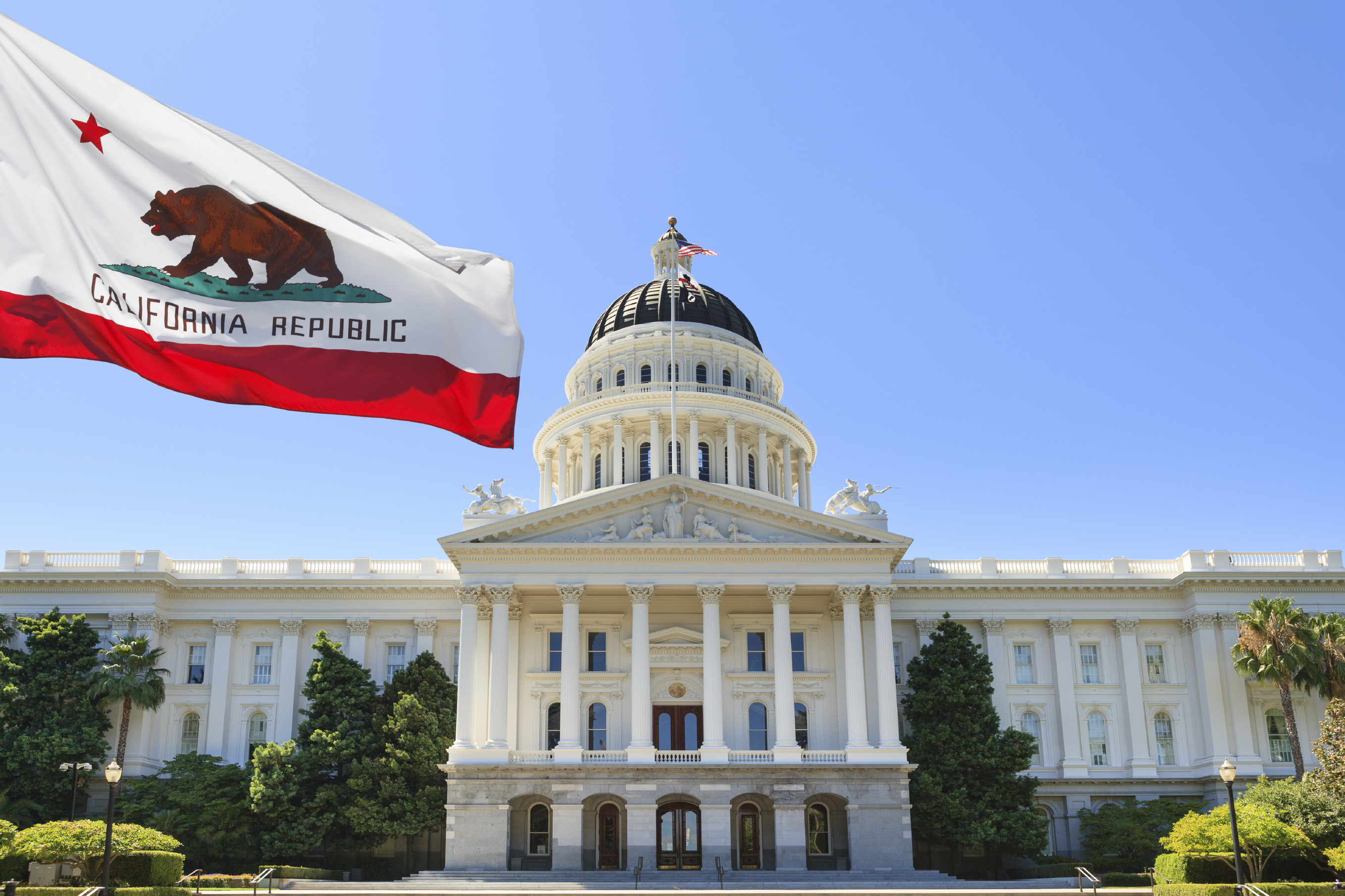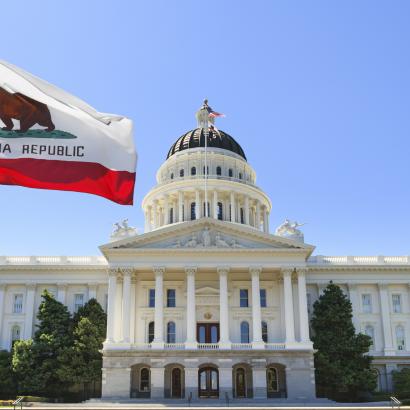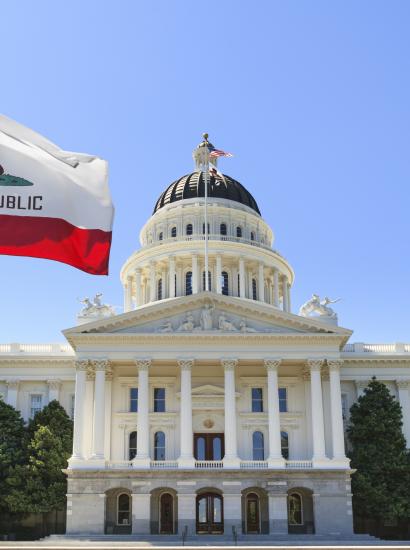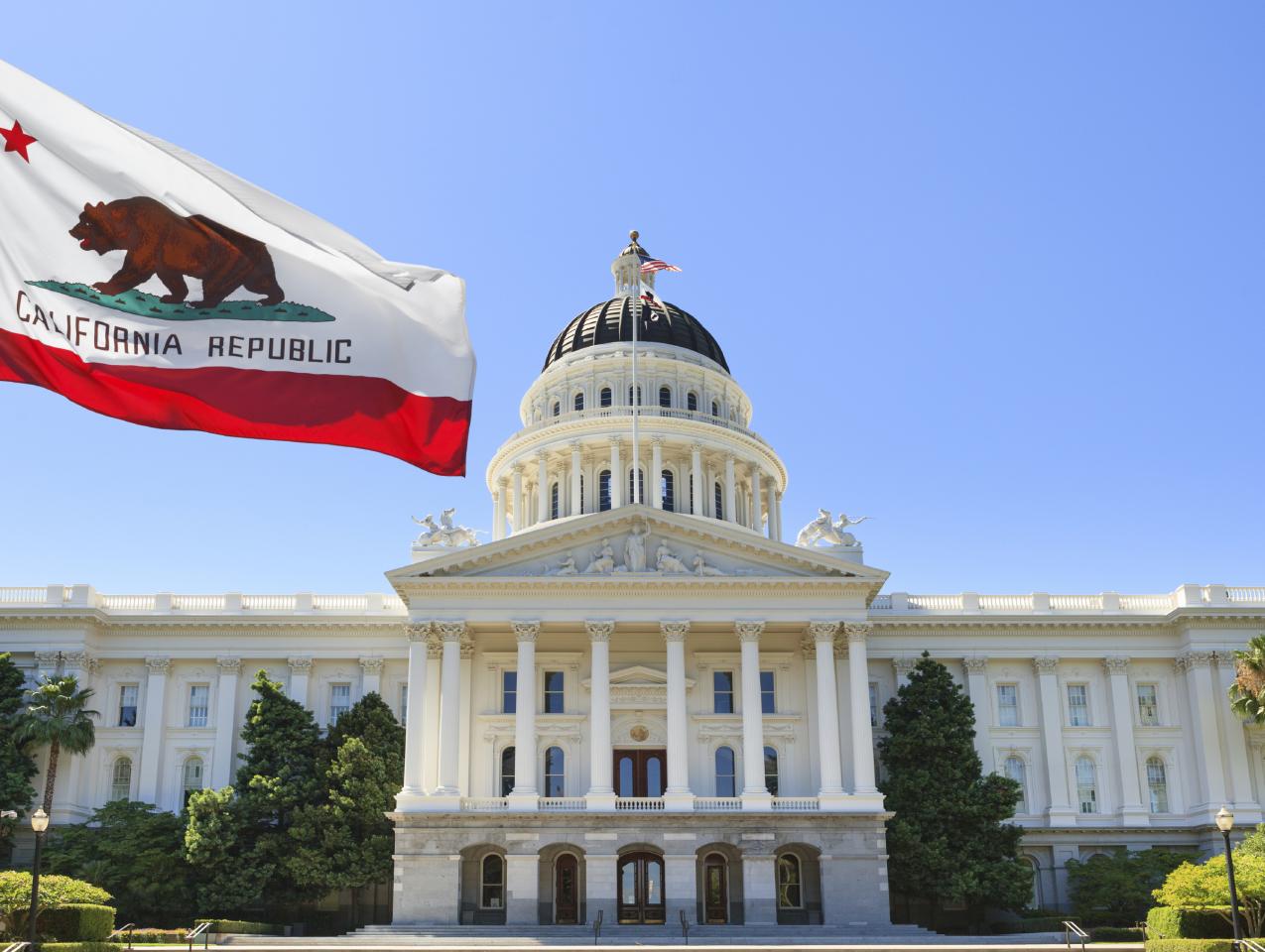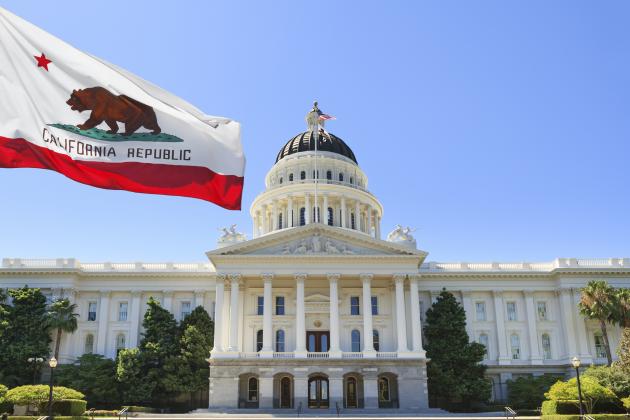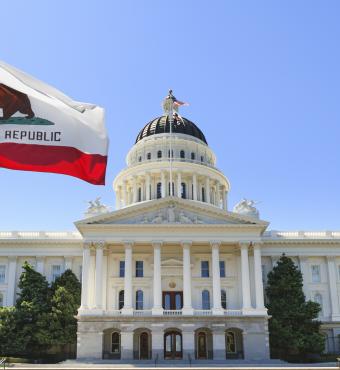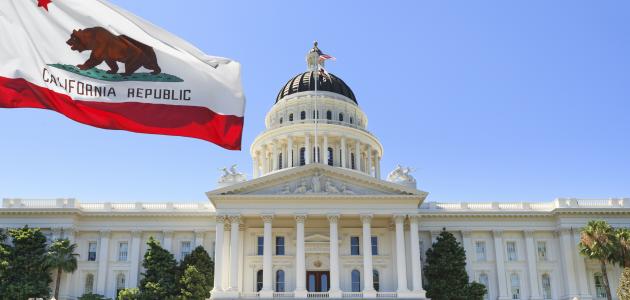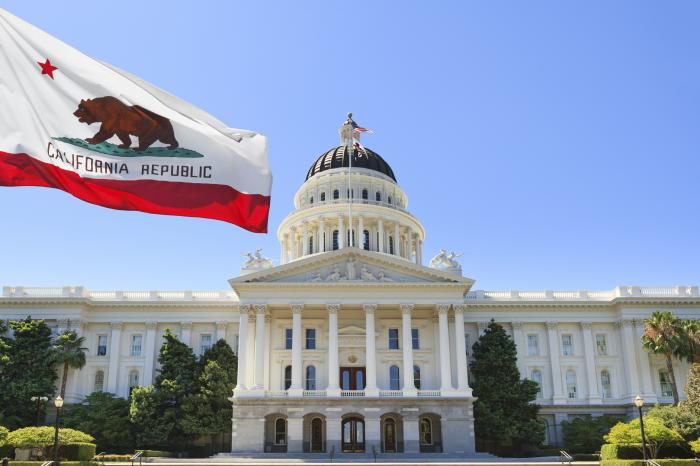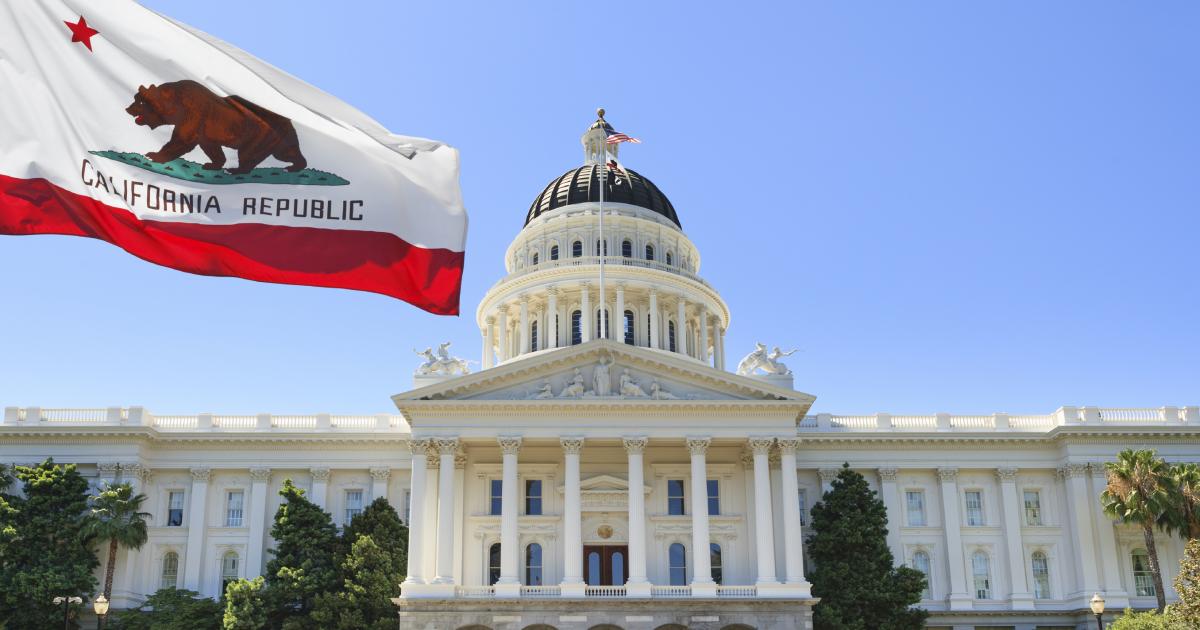- Politics, Institutions, and Public Opinion
- Campaigns & Elections
- The Presidency
- State & Local
- California
With US senator from California Kamala Harris no longer a participant in the Democratic presidential sweepstakes/demolition derby, we can say with some certainty that the Golden State won’t have a native son (or daughter) working out of the Oval Office, as an elected commander in chief, until 2025 at the earliest.
That’s eliminating some far-fetched scenarios, such as . . . the campaign of San Francisco billionaire and longshot presidential hopeful Tom Steyer’s somehow catching fire between now and California’s March 3 primary (Steyer, barely a presence in most polls, will participate in next week’s candidates’ debate in Los Angeles).
Or, even less likely, Democratic voters suddenly developing a hankering for Los Angeles–groomed Marianne Williamson, the self-help guru who’s earned the epithet “dangerous whacko” for her many curious opinions (lest you think American politics couldn’t be any stranger, check out her Twitter feed).
With Harris back at her Senate day job, now would seem a good time to review California’s Democratic hierarchy—specifically, if anything’s going to change among the key players anytime soon.
At the top of that power pyramid: Gov. Gavin Newsom.
With Harris out of the race, the question becomes, who next earns the governor’s endorsement? (This isn’t one of Newsom’s fortes—he endorsed Hillary Clinton in the summer of 2007 instead of the more futuristic Barack Obama.)
My guess: Newsom eventually sides with South Bend mayor Pete Buttigieg, should he remain a top-tier contender as February’s primaries and caucuses unfold.
For Newsom, endorsing Buttigieg would be a political bookend—the former San Francisco mayor who famously handed out marriage licenses to same-sex couples a decade before the US Supreme Court ruled on marriage equality, now supporting the first openly gay Democrat with a legitimate shot at his party’s nomination (don’t think Newsom won’t leap at the chance to traverse the nation and meet the same primary voters he’d be courting should Newsom one day seek the presidency).
On the next rung down on the ladder are Harris and California’s senior senator, Dianne Feinstein. Feinstein endorsed Biden, her longtime Senate colleague, back in October. Harris, if she’s smart, waits until closer to California’s March 3 primary. Assuming she’d accept a spot on the national ticket, Harris doesn’t want to bet on the wrong horse.
Now, the medley of Democratic state constitutional officers further down the ladder.
Lt. Gov. Eleni Kounalakis is in her first year in the job previously held by Newsom. Let’s assume she’s playing the same long game until 2026 as did Newsom—developing an issue portfolio, cherry-picking media opportunities, maybe dabbling in a few ballot measures.
But after the lieutenant governor, the plot thickens.
State Attorney General Xavier Becerra (appointed to the job after Harris was elected to the US Senate in 2016) can run for another term in 2022. That puts the AG on a collision course with the LG in a 2026 gubernatorial primary that would shape up as a fascinating study in geography (Kounalakis is a San Franciscan; Becerra’s from Los Angeles) and identity politics (Becerra is the first Latino to serve as California’s top law enforcement).
Speaking of restless California officeholders, while State Treasurer Fiona Ma is just one year into her post, two other statewide officials have decisions to make before long. State Controller Betty Yee and California Secretary of State Alex Padilla each are in the first year of their second and final terms (term limits coming into effect in California with the passage of 1990’s Proposition 140). Do they swap offices come November 2022?
This all assumes that a few wild cards don’t materialize between now and the next non-presidential statewide election.
First, there’s question of how a Trump loss next November, should it occur, would upset the Democratic order back in California.
House Democrats may decide to join a Democratic administration (in June 2009, for example, the late Ellen Tauscher resigned her East Bay congressional seat to become an undersecretary for arms control and international security in the Obama State Department). A state constitutional officer might see a safe and open House seat as a convenient way to parachute out of a term-limited job in Sacramento.
The second wild card: Feinstein’s future.
At age 86, she’s the nation’s eldest senator. What if she decides to step down before she’s up for re-election (or retires) in 2024?
Under California law, Newsom would name Feinstein’s successor. The last time a California governor had this choice was nearly 30 years ago, when Pete Wilson tapped John Seymour, a former realtor and Anaheim mayor, to complete Wilson’s Senate term after Wilson was elected governor in 1990 (Seymour would go on to lose to Feinstein in 1992).
Wilson’s one criterion was having a fellow pro-choice Republican as his successor. Newsom likewise would face political pressures in choosing Feinstein’s replacement. California’s the only state in America to have had two women in the US Senate since the dawn of Bill Clinton’s presidency. Would Newsom respect that lineage?
A second complication: California has never had a Latino US senator. Would Newsom break that drought? Among the possibilities: Padilla, California’s secretary of state, and Ricardo Lara, California’s current state insurance commissioner. However, Lara’s damaged political goods, as his one year at the state’s IC has been dogged by controversies involving campaign donations and regulatory conflicts of interests.
The third political wild card also concerns California’s presence in the US Senate: would Steyer challenge Harris, assuming she runs for reelection in 2022?
There may be bad blood between the two presidential candidates past and present. Harris made it a point to tell her supporters, in a campaign farewell email: “I’m not a billionaire. I can’t finance my own campaign.” Was she referencing Steyer or former New York City mayor Michael Bloomberg, whose coast-to-coast ad blitz includes the Golden State?
Steyer would bring plenty of money to a California US Senate race. Plus, maybe a grudge if he walks away bitter from his current presidential experience. And, if he’s willing to be mischievous, the ability to rattle Harris by using his considerable wealth to point out her skimpy Senate record.
Could Steyer defeat Harris? Incumbency is a powerful tool in the Golden State. (The last senator to get the boot, in 1976, was the late John Tunney, the son of famed boxer Gene Tunney and the inspiration for the movie The Candidate.)
But to pull off the upset, Steyer would need a significant portion of California Republicans to jump on the anti-Harris bandwagon. Could that happen, once conservatives were reminded of Steyer’s two-year push to convince Congress to impeach the Republican president?
Even for a wild card, that sounds a little too wild to believe.







